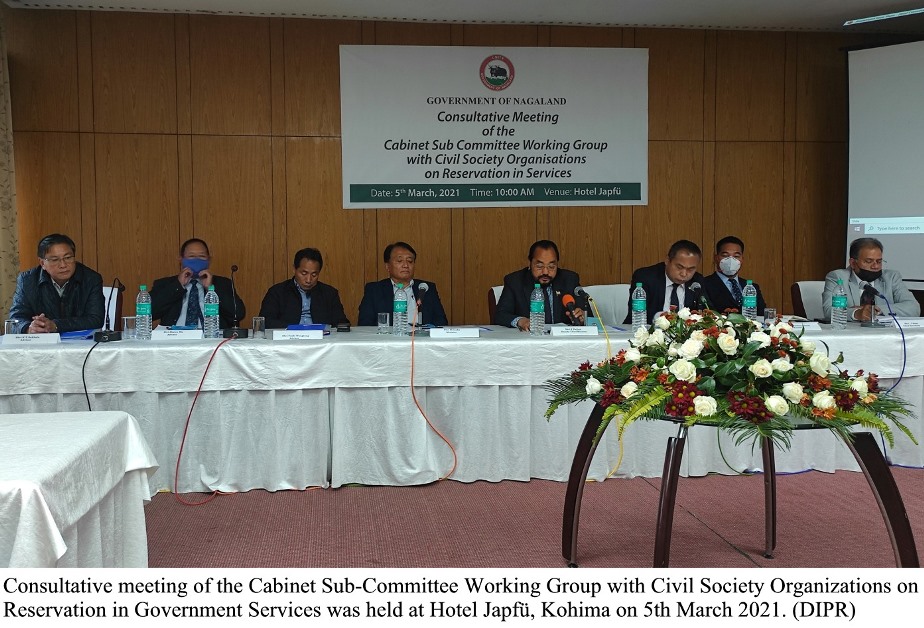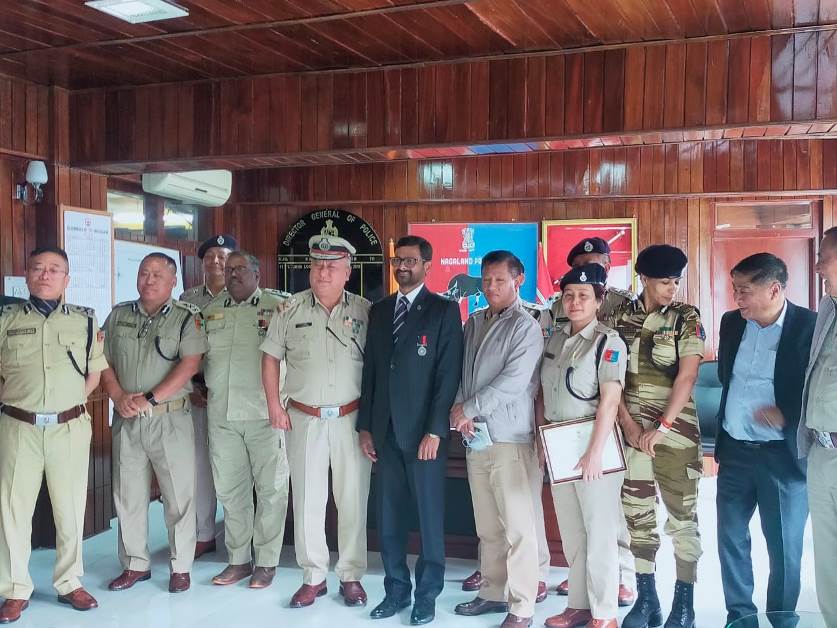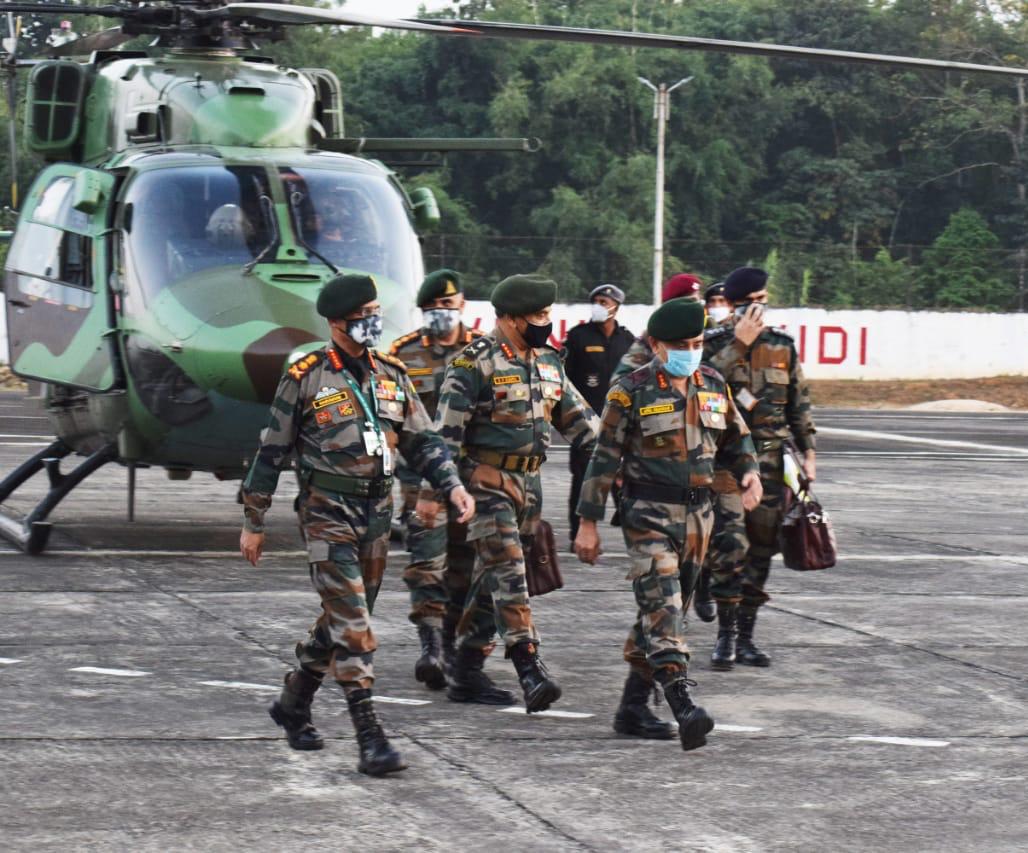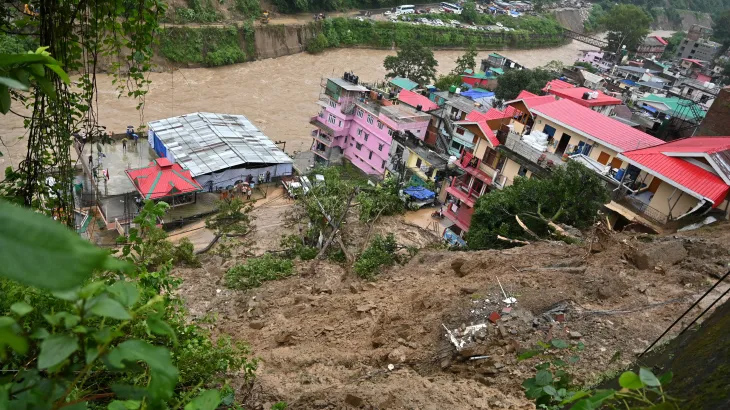No policy is perfect and needs to evolve with time : Minister
 KRC TIMES Desk
KRC TIMES Desk

The Consultative meeting of the Cabinet Sub-Committee Working Group with Civil Society Organizations on Reservation in Government Services was held at Hotel Japfü, Kohima on 5th March 2021.
In his introductory remarks, Minister Planning & Coordination, Land Revenue, Neiba Kronu said that the issue of reservation in government services have been deliberated by various committees in the past like the Banuo Jamir Committee, Kevichusa Committee, Temjen Toy Committee etc. While reservation for indigenous Nagas was introduced in 1967, the reservation policy for backward tribes has been in existence since 1977. Over the last 44 years of its implementation in the state, the reservation policy has undergone several changes. No policy is perfect and needs to evolve with time. Accordingly, the Government had decided to review the existing reservation policy.
Kronu stated that in August 2019, a Review Committee on Job Reservation policy was constituted under the chairperson of Sentiyanger Imchen, ACS & Dev. Commissioner and Members consisting of Home Commissioner, Administrative Head of P&AR, Administrative Head of DIJDA and Director, DUDA as Member Secretary. The Cabinet in its meeting held on 2nd March 2020 decided to reconstitute the Committee to review the existing reservation policy of the State under Chairmanship of J. Alam, ACS & Dev. Commissioner with Members from P&AR Department, Home Department, DUDA and Justice & Law Department. He also said that the above Committee to review the existing reservation policy is yet to submit its report to the Cabinet Sub-Committee.
He said that the state government had decided to set up NSSB and it was notified on 20th July 2020. However, due to various grievances voiced about its composition and scope etc., the NSSB was kept on hold by the cabinet and it has not yet started functioning. The present Cabinet Sub Committee was constituted in light of the ENSF Charter of demands rejecting the present form of the NSSB regulations, 2020 and certain other grievances relating to the implementation of the reservation policy by the NPSC, he added.
He informed that the Cabinet on 25th Nov, 2020 included Advisor, IPR, SCERT and Home Guards, Toshi Wungtung in place of Lt. C.M. Chang. Further, the Cabinet in its meeting on 14th Jan 2021 decided to include Minister, Metsubo, Advisor K.T.Sukhalu, and Advisor Zhaleo Rio, in the Working Group of the Cabinet Sub-Committee. It was also decided to include representatives of NSF, ENSF, ENP0, ENGOA, CNTC and Tenyimia People Organization (TPO) in the working group besides others as the committee deemed fit.
Kronu informed that the Cabinet also discussed on 18th Dec 2020 the representation submitted to the Chief Minister on 14th Dec 2020 by the Core Committee on Rationalization of Reservation Policy (CCoRoRP) on Nagaland Reservation Policy consisting of the five tribal student bodies (i) All Sumi Students’ Union (SKK), (ii) Angami Students’ Union (ASU), (ii) Ao Students’ Union (AKM), (iv) Lotha Students’ Union (LSU) and (v) Rengma Students’ Union (RSU) and another representation from Tenyimia Students organizations.
He also said that the Cabinet Sub-committee felt that the issues relating to reservation and functioning of NSSB required wider consultation and asked for views and thoughts to have a comprehensive look at the Reservation Policy of the State. Reservation for the Backward Tribes in Nagaland began in 1977 when the state implemented 25% reservation in non-technical and non-gazetted posts for 7 (seven) tribes which were identified as Backward Tribes because they were educationally and economically backwards and also having insignificant representation in the services in the State for a period of 10 years. More tribes have since been added and the quantum of reservation was increased. It is presently at 37% with 25% earmarked for the 6 (six) Eastern Naga BT tribes and 12% earmarked for the other 4 (four) BT tribes. The roster system was introduced in 2001 to ensure equitable distribution of reservation among the Backward Tribes, he added.
Chief Secretary, Nagaland, J. Alam, while delivering the welcome address thanked all the Government Officials, Civil Society Organizations and participants for attending the meeting so as to discuss and deliberate important issue as it touches the future of the educated youth in all walks of life.





